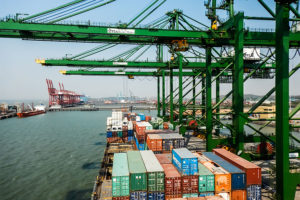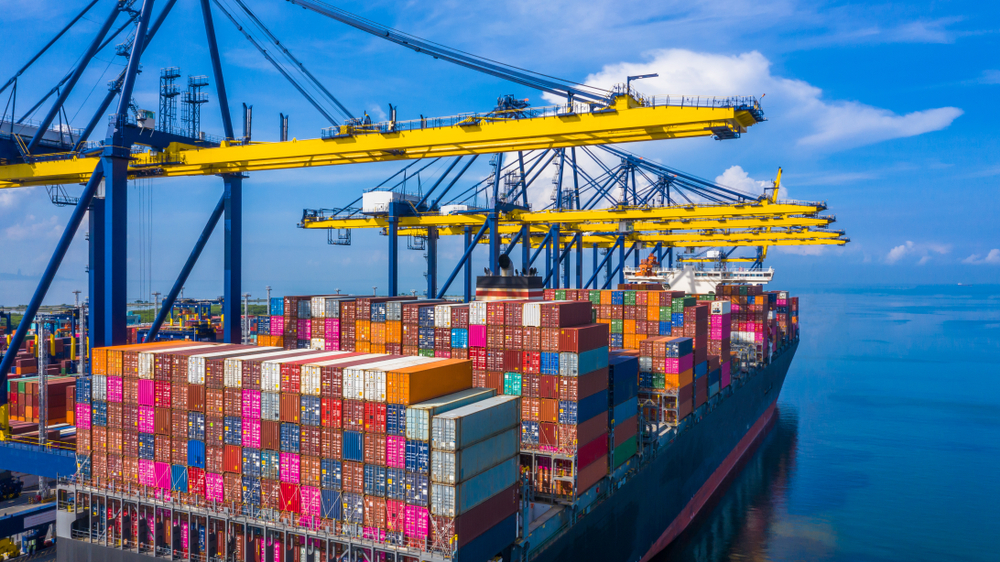Business Terminology : Global value chains (GVCs)
Firms across the world try to optimise their production processes by locating the various stages across different sites, giving birth to global value chains (or GVCs). GVCs include international production sharing, a phenomenon where production is broken into activities and tasks carried out in different countries. Intermediate products cross several borders in GVCs in different stages of production before they are turned into final goods for consumption.

COVID-19 brought the world to its knees as China, regarded as the factory of the globe, shut its doors to prevent the spread of the pandemic. The simple reason for this is that markets are complementary and whatever affects supply and demand in one market will have ripple effects in other markets. As a result of this, a lot of countries were forced to rethink their production strategies and to diversify their participation in global value chains (GVCs).
What are GVCs?
Intermediate products cross several borders in GVCs in different stages of production before they are turned into final goods for consumption. This is due to the fact that firms try to optimise their production processes by locating the various stages across different sites. GVCs include international production sharing, a phenomenon where production is broken into activities and tasks carried out in different countries. Various countries across the world can reap benefits from fragmentation of production, as this will lead to increased job creation and economic growth. Specialisation has greatly increased productivity. Thus, they are a powerful driver of productivity growth.
WTO lays out some of the issues that can crop up with GVCs. Not every supply chain is the same, and nor is every company involved in supply chains. Therefore, diverse tasks involved in a supply chain require different sets of skills and management activities. Secondly, managing operations and inventory at diverse locations requires very close coordination across multiple countries and tight communication with customs officials to be able to deliver on time. Building these relationships can be costly, tedious and time consuming. Getting sufficient workers having the right set of skills is also proving to be difficult in some markets. For example, there is a dearth of technical workers in the USA. Lastly, intensified interdependency in international production relationships through GVCs inevitably calls for greater mutual policy dependency. Rigid regulations and standards make the trade ecosystem incompatible for firms.
India as a part of the GVCs
If firms across the world set up their production base in India, it will be quite beneficial for India. This would mean more inflow of foreign wealth, creation of more employment opportunities and higher inflow of foreign capital. The factors that work well for India are that it has a young demographic pool, a large market for domestic consumption, a democratic regime and a fairly decent ease of doing business score, making it an attractive investment destination.
Since different countries like Vietnam & Bangladesh are trying to leverage the global mood to move out of China, the Indian government is taking steps to lure international investors. For example, in March, the government rolled out incentives amounting to INR 48,000 crore to boost mobile phone manufacturing in the country. The government is also in talks with companies from US to attract investments in the fields of medical equipment suppliers, food processing units, textiles, leather and auto part makers, among others. India is also developing a land pool nearly double the size of Luxembourg to entice businesses. Similarly, while the Ministry for New and Renewable Energy (MNRE) has coaxed states to incentivize setting up designated renewable energy manufacturing hubs in India, Ministry of Commerce and Industry (MOCI) is brainstorming hard to identify the champion sectors that would catapult India as the world’s factory. India is also said to be planning a tax holiday for companies bringing new investments.
In addition to these efforts, if India truly wants to emerge as the linchpin of global production, then it needs to focus on specialisation at large-scale labour-intensive activities. Further, it should look for investments in raw materials in order to be self-sufficient and better equipped for such situations. Lastly, it to take measures to enhance the ease of doing business in terms of property registration, starting a business, tax payment and enforcing contracts.













Leave a comment